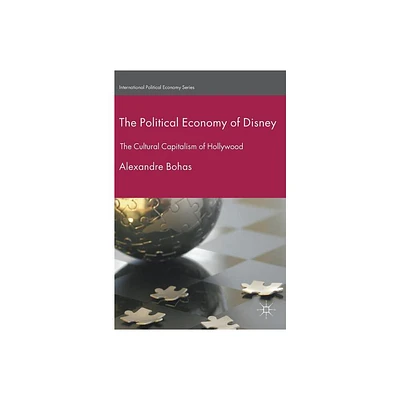Home
The Political Economy of Redistribution Indonesia: Patronage and Favoritism Intergovernmental Fiscal Transfer Allocations
Loading Inventory...
Barnes and Noble
The Political Economy of Redistribution Indonesia: Patronage and Favoritism Intergovernmental Fiscal Transfer Allocations
Current price: $180.00


Barnes and Noble
The Political Economy of Redistribution Indonesia: Patronage and Favoritism Intergovernmental Fiscal Transfer Allocations
Current price: $180.00
Loading Inventory...
Size: Hardcover
*Product Information may vary - to confirm product availability, pricing, and additional information please contact Barnes and Noble
This book analyses how different institutional intergovernmental transfer designs influence patronage and favoritism in public fund allocations in Indonesia.
Presenting original research and investigating existing theories on the determinants of public fund allocations, the book uses Indonesia as a case study. Indonesia, often claimed to be characterized by money politics, provides an ideal setting for this analysis. The countries' decentralized fiscal system consists of various institutional intergovernmental transfer designs allocating public funds to a large variety of districts to finance public service provision. The author exploits those distinctive differences between various institutional intergovernmental transfer designs and investigates their influence on the prevalence of favoritism and patronage in public funds allocations while holding the political system, the observation period, and the government officials involved constant.
A valuable contribution to the literature on the political economy of redistribution, this book will be of interest to academics working on economics and political science, particularly in public finance and development economics, but also in development studies or Southeast Asian studies.
Presenting original research and investigating existing theories on the determinants of public fund allocations, the book uses Indonesia as a case study. Indonesia, often claimed to be characterized by money politics, provides an ideal setting for this analysis. The countries' decentralized fiscal system consists of various institutional intergovernmental transfer designs allocating public funds to a large variety of districts to finance public service provision. The author exploits those distinctive differences between various institutional intergovernmental transfer designs and investigates their influence on the prevalence of favoritism and patronage in public funds allocations while holding the political system, the observation period, and the government officials involved constant.
A valuable contribution to the literature on the political economy of redistribution, this book will be of interest to academics working on economics and political science, particularly in public finance and development economics, but also in development studies or Southeast Asian studies.


















